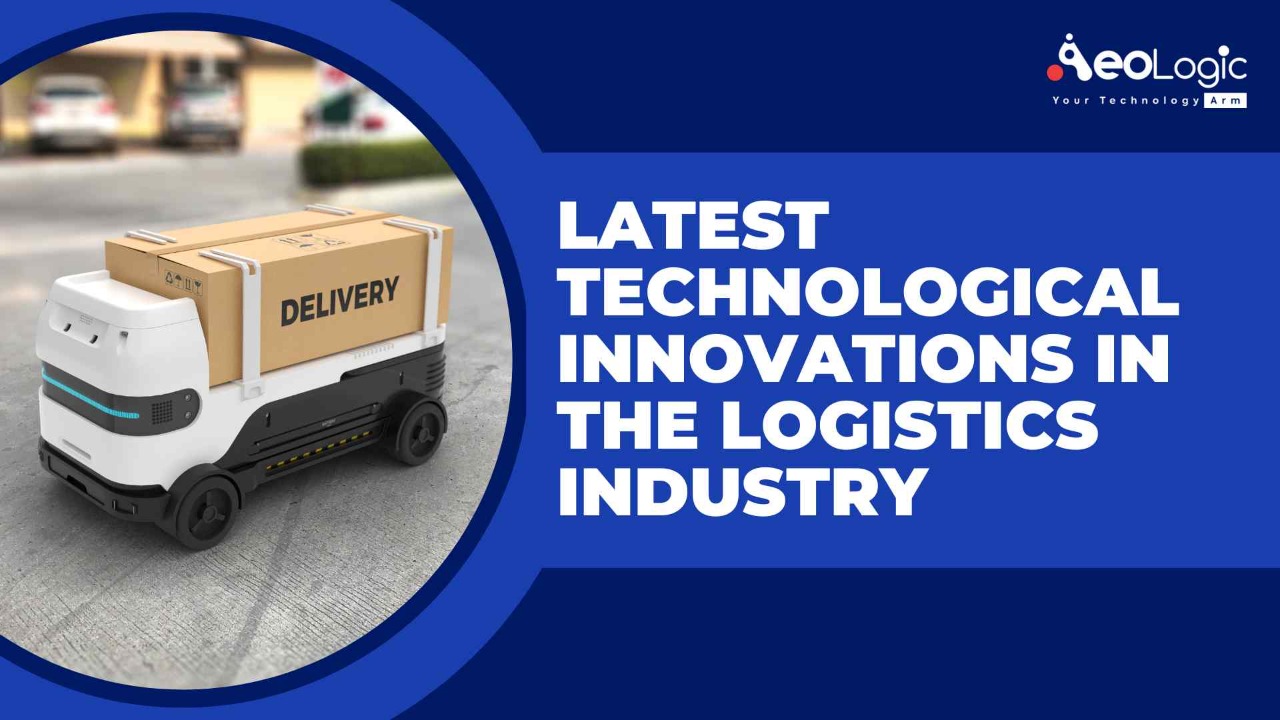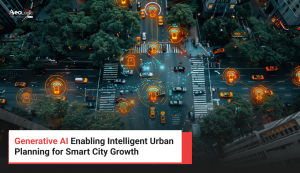The global pandemic of Covid-19 has led to turbulence in the supply chain. As a result, more and more companies are turning to optimization and digitization to optimize their logistics processes. In this blog, we’ll let you know about the latest technological innovations in the logistics industry.
Effects of Covid-19 on Logistics
The global supply chain and logistics business evolve in tandem with customer demands. The broad-ranging effects of Covid-19, a global economic slowdown, trade dispute, and changing customer expectations have all fueled this extraordinary upheaval. These variables have brought unexpected obstacles, but they have also brought a great opportunity for the logistics industry. The effects of these changes will usher in a wave of digital transformation fueled by digital ecosystems for both the supply chain and logistics industries over the coming decade.
Latest Technological Innovations In Logistics Industry
Digital behemoths like Amazon and the slew of startups are exposing new business models. It is leveraging new technologies like blockchain, AI, and many others to radically alter the future of logistics. Digital ecosystems provide a digital framework for new business model designs, as well as the adaptation of existing business models to multi-sided businesses in the future.
There are many astonishing innovations that are about to happen. But for this blog, we’ve picked up two from the bucket. So, the following are the innovations in the logistics industry that will happen in the coming years.
Digital Fight Brokerage
Nowadays, many business owners create and sell items, and for that reason, many of them rely on transportation to get their commodities to their clients. Hence, effective communication is critical for their work productivity. Pickup dates, transportation conditions, transport destinations, shipment paperwork, delivery times, and all the other details are all agreed upon by freight forwarders and carriers. Large enterprises utilize transport management systems for these uses.
Freight brokers are human agents who operate as middlemen between shippers and truck drivers in offline mode. Digital brokerage software on the other hand replaces human in the realm of digital transformation and allow for quick matching of parties involved. Consider dating applications like Tinder or bumble to better grasp digital brokerage in logistics. Its mission is to locate the ideal match between people looking for friendship and love. Apps for freight brokerage accomplish the same things. The only difference is that they link senders with truck drivers, enabling faster and less expensive cargo transportation.
Artificial Intelligence And Machine Learning
Another innovation in the logistics industry is more adaptation of artificial intelligence (AI) and machine learning (ML). The potential for AI and ML in logistics is enormous. A supply chain is a tremendous goldmine of structured and unstructured data. The logistics companies can dramatically transform operations by harnessing and analyzing them, identifying patterns, and generating insights into every link of the supply chain. Companies can use machine learning to find trends in supply chain data. They use algorithms that highlight the major elements driving their supply network success while concurrently learning. These patterns might be related to inventory levels, supplier quality, demand forecasting, production planning, transportation management, and more. They provide firms with the knowledge and valuable insights regarding the need to lower freight costs, improve supplier performance and reduce supplier risk.
Some Stats About The Upcoming Trends In The Logistics Industry
Many instances of how AI is improving businesses are already in place. Natural language processing (NLP) can aid logistics companies to detect financial discrepancies by obtaining critical information from invoices. Predictive network management can identify possible shipping delays and help businesses plan freight more efficiently. Predictive risk management entails using NLP tools to monitor online news and conversation related to supply chain factors and taking proactive risk management measures.
According to research, the artificial intelligence market in logistics is expected to increase at a CAGR of more than 45% to more than 7 billion dollars by next year. Warehouse manger’s efficiency can also be boosted using augmented reality gadgets. Consider a case in which a warehouse worker needs to locate a product fast among thousands of others. They can use a smartphone or augmented reality glasses to assist them by highlighting the required object with color or animation. Networks can now transfer massive amounts of data and display such visuals in real-time because of 5G.
Conclusion
To sum up, the implementation of artificial intelligence (AI) and machine learning (ML), and things like digital freight brokerage can definitely be considered as innovations in the logistics industry. These new trends will not only optimize the efficiency of the logistics industry, but will also transform the operation drastically.
Are you looking forward to the latest technological innovations in logistics industry to optimize your supply chain? If yes, so, please feel free to contact us at support@aeologic.com









